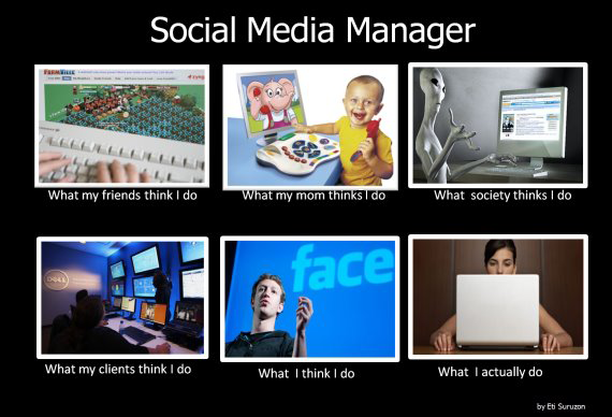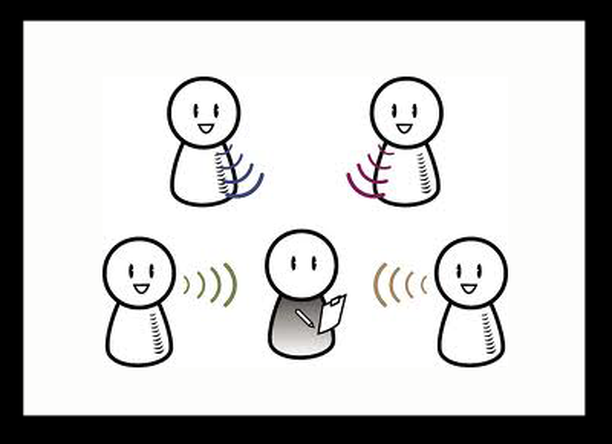Compare courses from top Australian unis, TAFEs and other training organisations.
10 Jobs That the Internet Created
The internet may have made some occupations redundant but did you know it has created more jobs than it has made obsolete? This week Julia looks at some of the new roles that have been spun in the world wide web.
Julia Watters
Jun 15, 2025
Once upon a time, careers were limited to traditional fields like teaching, banking, and trades. But thanks to the internet, entirely new industries—and jobs—have emerged, many of which didn’t even exist 20 years ago.
Whether you’re looking for your first job, a career pivot, or a digital side hustle, here are 10 internet-created roles that are not only real—but booming.
1. Social media manager
Social media is no longer just for selfies—it’s big business. Brands rely on social media managers to craft content, grow online communities, and run digital campaigns that drive engagement and sales.
You’ll need creative and analytical skills, platform expertise (Instagram, TikTok, LinkedIn), and a strong grasp of brand voice. Many roles are remote or freelance.
Suggested course: Diploma of Social Media Marketing
2. Web developer
Behind every website or web app is a developer who made it functional, fast, and secure. Web developers use coding languages like HTML, CSS, JavaScript and Python to build digital platforms for e-commerce, education, entertainment and more.
This is one of the most in-demand roles globally, and you don’t necessarily need a degree—just skills and a solid portfolio.
Suggested course: Diploma of Website Development
3. Apple Genius / Tech Support Specialist
Apple’s Genius Bar turned tech support into a customer-facing career. Today, tech support roles—remote or in-store—exist across every major tech company. Whether it’s resetting a device, recovering data or walking a user through cloud backup, this role blends technical skills with human empathy.
Bonus: these roles often lead to broader careers in IT or cybersecurity.
Explore: IT Support & Helpdesk Courses
4. SEO Specialist
Search engine optimisation (SEO) helps websites rank higher on Google—and higher visibility means more clicks, leads, and sales. SEO specialists research keywords, optimise web content, and implement strategies to improve organic search rankings.
This role didn’t exist pre-Google, but now it’s a staple in digital marketing agencies, start-ups and e-commerce businesses.
Suggested course: Certificate in Digital Marketing
5. App Developer
Apps are part of everyday life—from fitness to finance. App developers design, build, test and update applications for iOS, Android and cross-platform use. You could work for a tech company or start your own app business.
Learning Swift, Kotlin or Flutter can set you up in this high-paying, mobile-first career.
Suggested course: Bachelor of Computer Science
6. UX designer
User Experience (UX) designers ensure that websites and apps are intuitive and enjoyable to use. They focus on layout, navigation, and user behaviour to improve engagement and conversion rates.
UX is now an essential part of product design, and demand for designers spans from startups to global corporations.
Suggested course: Diploma of UX Design
7. Cloud Services Engineer
Cloud computing powers almost everything online—from Netflix streaming to online banking. Cloud specialists manage servers, storage, and networks for companies that host data in the cloud (e.g. AWS, Azure, Google Cloud).
This role requires advanced IT knowledge and is one of the most in-demand (and best-paid) tech roles today.
Suggested course: Certificate IV in Information Technology (Networking)
8. Software Engineer
Software engineers design and build the code that powers websites, games, databases, and more. From chatbots to payment gateways, these engineers make the internet function smoothly.
With coding bootcamps, micro-credentials and self-paced courses, you can enter this field without a CS degree.
Suggested course: Certificate IV in Programming
9. Online Course Creator / MOOCs Coordinator
Massive Open Online Courses (MOOCs) have exploded globally, giving rise to jobs in online curriculum development, facilitation and content production. Coordinators handle student engagement, tech support and course quality across platforms like Coursera, edX and Udemy.
In the era of eLearning, instructional design and course facilitation are fast-growing specialisations.
10. Blogger / Content Creator
Blogging evolved from personal journaling to a professional content industry. Today’s bloggers often write for businesses, manage affiliate content, or build loyal followings on niche topics—from parenting to finance.
Companies also hire freelance writers or content marketers to fuel their SEO strategies and digital brand storytelling.
Suggested course: Certificate in Professional Writing and Editing
Explore: How to Become a Professional Blogger
The Internet Didn’t Just Kill Jobs—It Created Them
According to the McKinsey Global Institute, the internet has created 2.6 new jobs for every one it’s displaced. As more businesses shift online and the digital economy grows, demand for skilled professionals across tech, marketing and content is only increasing.
Not sure how to get started? Online learning has made upskilling easier than ever. Whether you’re looking to switch careers, start freelancing, or launch your own online business, there’s never been a better time to start.
About the author
Julia Watters covers topics in career development, educational guidance, and workplace success in her Career FAQs articles.
Categories










